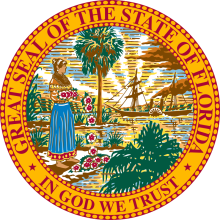Florida Designates $144 Million in ARPA Funds for 58 Broadband Projects
Florida’s state broadband office is doling out $144 million in grants to 58 different broadband expansion projects across 41 Florida counties.
The funding is being delivered courtesy of Florida’s Broadband Opportunity Grant Program, itself made possible by federal legislation—the American Rescue Plan Act (ARPA)— that many Florida lawmakers opposed.
The full breakdown of the deployments make it clear that, similarly to what we’ve seen in states like Montana, the lion’s share of state funding will be going to regional cable monopolies.
Roughly $89 million of Florida’s $144 million grant award will be going to the state’s three largest cable broadband providers: Cox, Comcast, and Charter. Comcast obtained $45 million, Charter was awarded approximately $28 million, and Cox was awarded $16 million. A more detailed breakdown of the awards obtained by Telecompetitor indicates that the vast majority of the projects are partnerships with cable giants.



